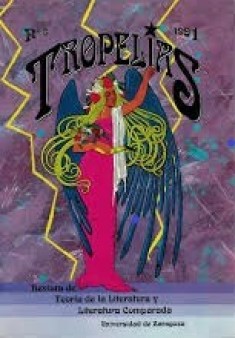Literary genres and the ethnography of the speech
DOI:
https://doi.org/10.26754/ojs_tropelias/tropelias.199123458Keywords:
Literary genres, ethnolinguistics, kuna people, oralityAbstract
This article deals with literary genres from an ethnolinguistic point of view. Current approaches to this topic usually consider literary genres as modalities of literature in where specifical attitudes of the participants are implied: thus, poetry is supposed to emphasize the contribution of the speaker, drama to be directed to the hearer, and narrative to refere on the external world . According to our common assumption such three modalities would characterize western literary tradition, while more "primitive" ones had only developed poetry, or even drama (as it is the case with Chinese and Japanese drama), but never narrative, the most difficult and latest one. By examining three popular genres of ritual discourse in kuna society (a chibcha people from Panamá) this contribution shows that they correlate with the above mentioned types, since literary genres are in relationship to human expressive necessities. The more "primitive" a society looks like, the more "magic" these modalities appear, but their communicative necessity always remains.
Downloads
Downloads
Published
How to Cite
Issue
Section
License
Los artículos enviados a la revista Tropelías deben ser originales e inéditos, no publicados previamente en cualquier soporte. Únicamente se aceptará material publicado total o parcialmente con anterioridad, o que esté en proceso de evaluación en otra revista, si se hace constar la causa de tal duplicación y se facilita la fuente donde ha aparecido dicho artículo.
Las imágenes que se incluyan en los artículos estarán libres de derechos de reproducción y, en caso contrario, los autores deberán presentar los permisos para su publicación y asumir los pagos derivados de ello.
Los artículos y reseñas publicados en la revista Tropelías pueden ser incluidos en repositorios temáticos o institucionales desde el momento de su publicación, sin modificación alguna e indicando claramente su procedencia.


